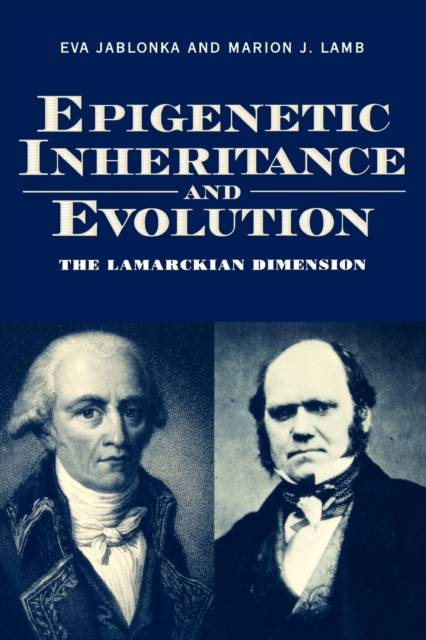
- Afhalen na 1 uur in een winkel met voorraad
- Gratis thuislevering in België vanaf € 30
- Ruim aanbod met 7 miljoen producten
- Afhalen na 1 uur in een winkel met voorraad
- Gratis thuislevering in België vanaf € 30
- Ruim aanbod met 7 miljoen producten
Zoeken
€ 149,95
+ 299 punten
Omschrijving
Does the inheritance of acquired characteristics play a significant role in evolution? In this book, Eva Jablonka and Marion J. Lamb attempt to answer that question with an original, provocative exploration of the nature and origin of hereditary variations. Starting with a historical account of Lamarck's ideas and the reasons they have fallen in disrepute, the authors go on to challenge the prevailing assumption that all heritable variation is random and the result of variation in DNA base sequences. They also detail recent breakthroughs in our understanding of the molecular mechanisms underlying inheritance--including several pathways not envisioned by classical population genetics--and argue that these advances need to be more fully incorporated into mainstream evolutionary theory. Throughout, the book offers a new look at the evidence for and against the hereditability of environmentally induced changes, and addresses timely questions about the importance of non-Mendelian inheritance. A glossary and extensive list of references round out the book. Urging a reconsideration of the present DNA-centric view prevalent in the field, Epigentic Inheritance and Evolution will make fascinating and important reading for students and researchers in evolution, genetics, ecology, molecular biology, developmental biology, and the history and philosophy of science.
Specificaties
Betrokkenen
- Auteur(s):
- Uitgeverij:
Inhoud
- Aantal bladzijden:
- 360
- Taal:
- Engels
- Reeks:
Eigenschappen
- Productcode (EAN):
- 9780198540632
- Verschijningsdatum:
- 11/05/1995
- Uitvoering:
- Paperback
- Formaat:
- Trade paperback (VS)
- Afmetingen:
- 156 mm x 234 mm
- Gewicht:
- 508 g

Alleen bij Standaard Boekhandel
+ 299 punten op je klantenkaart van Standaard Boekhandel
Beoordelingen
We publiceren alleen reviews die voldoen aan de voorwaarden voor reviews. Bekijk onze voorwaarden voor reviews.











